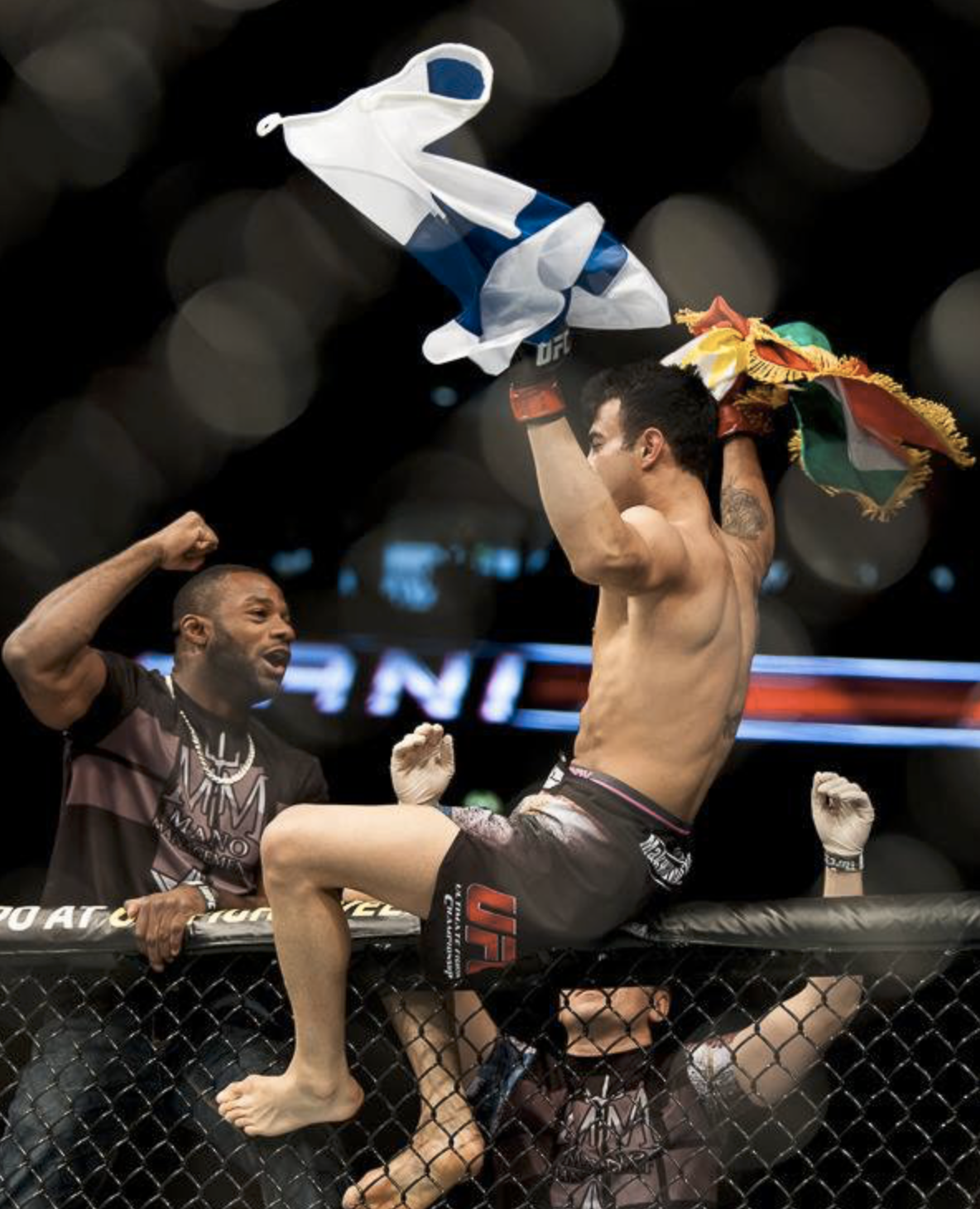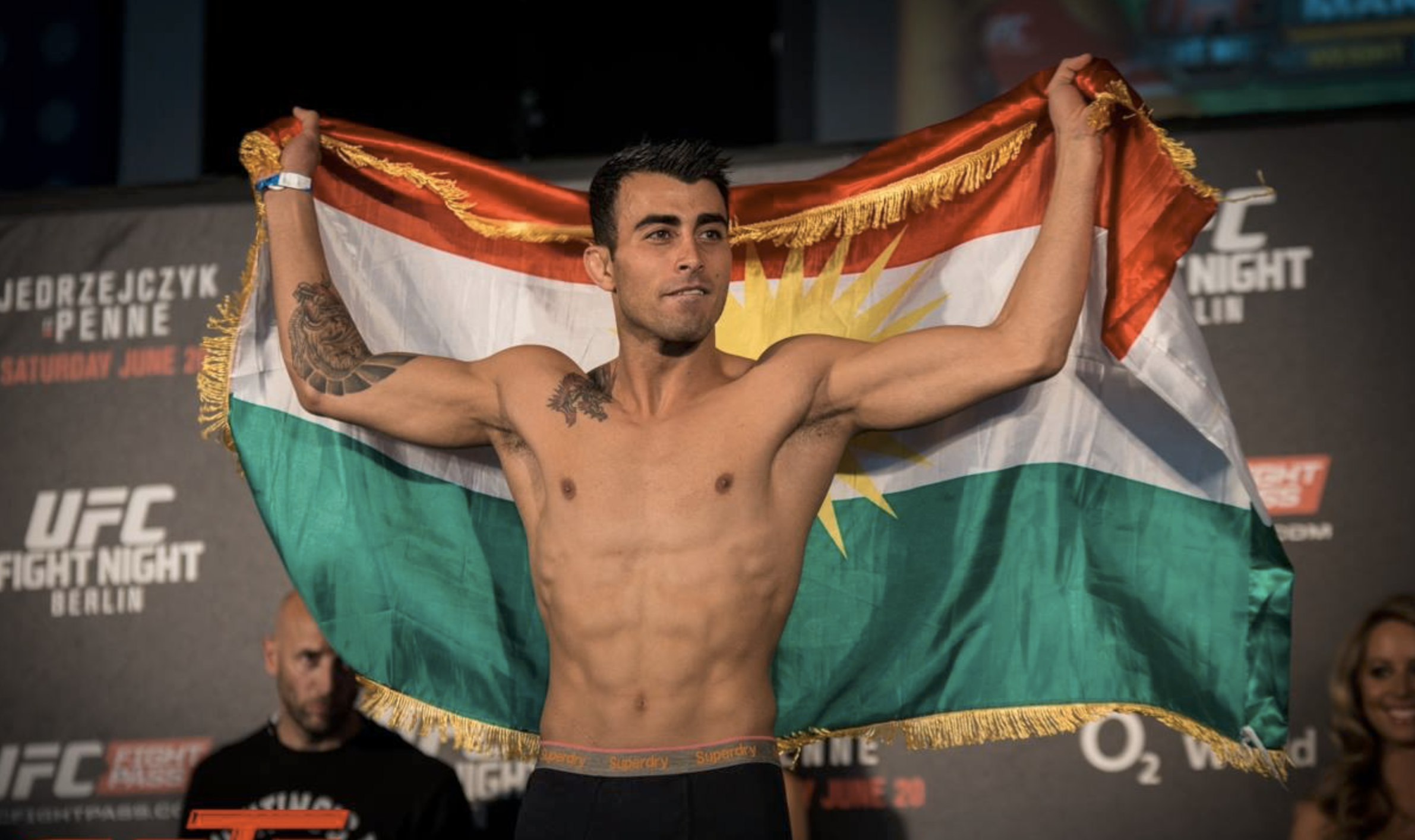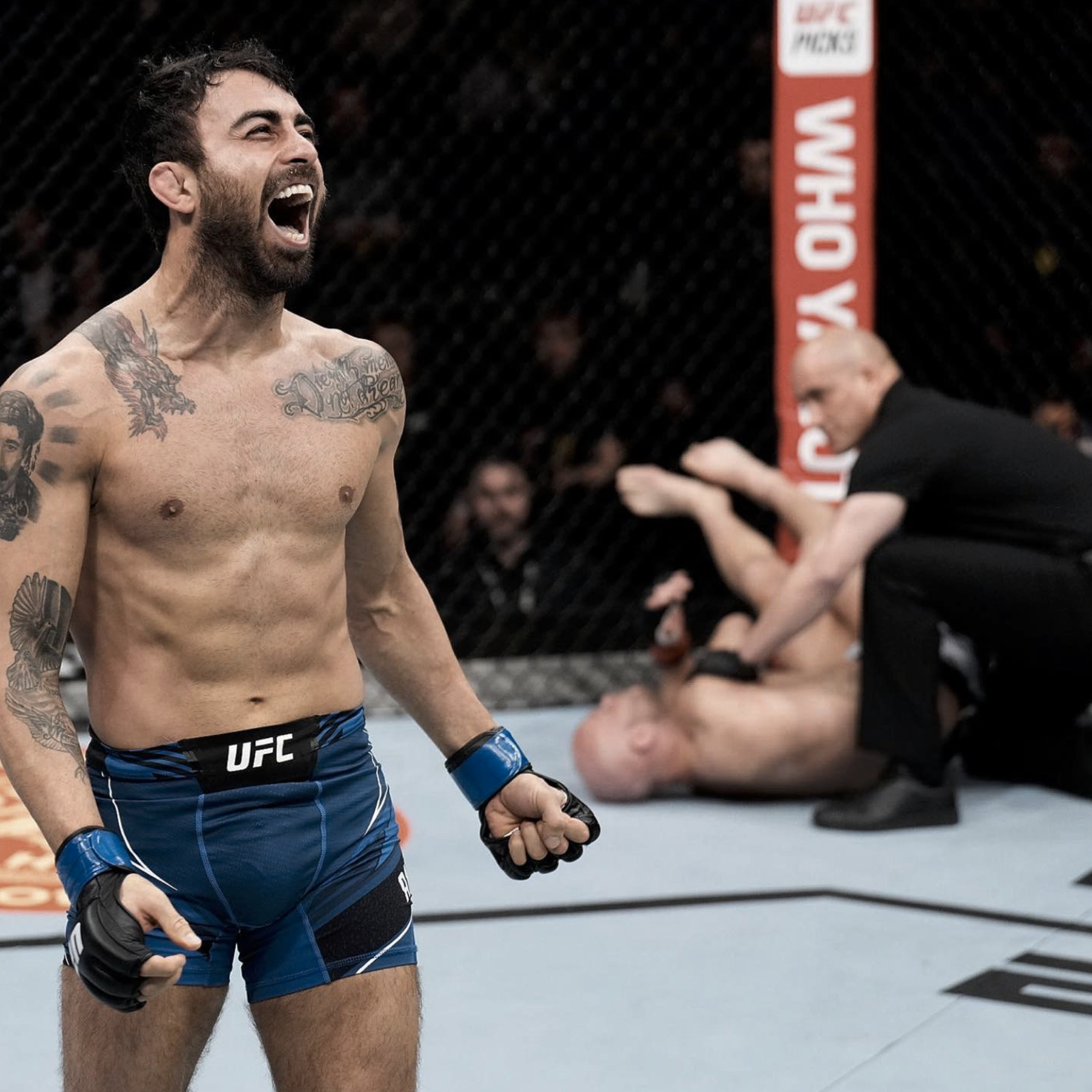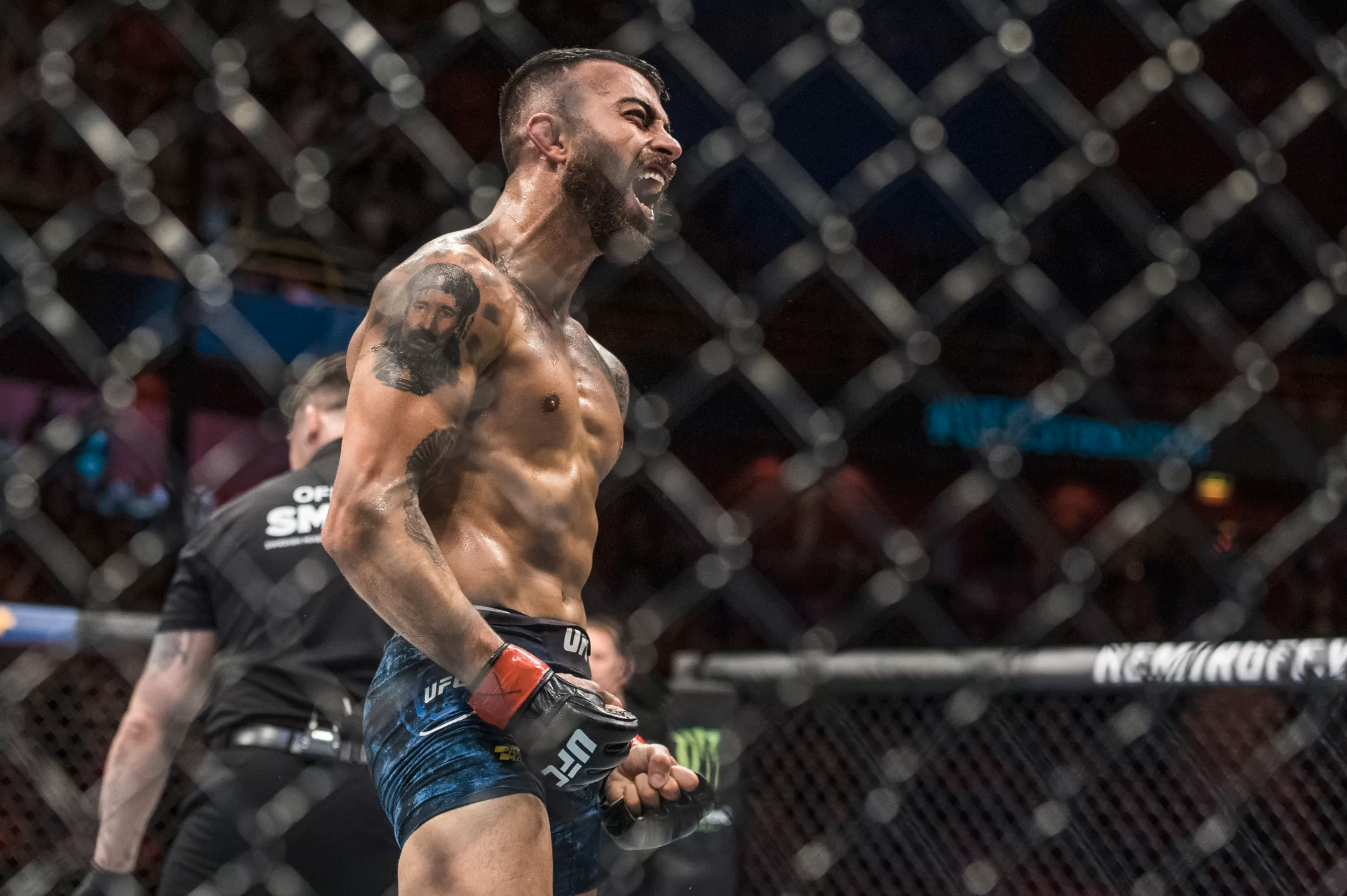Makwan Amirkhani, a warrior draped in the Kurdish flag, fist raised high after a grueling victory in the Ultimate Fighting Championship (UFC) octagon, the eight-sided ring used for UFC matches. Each time, the image ignited a spark of pride, a testament to the human spirit’s ability to overcome adversity. So, it was with immense anticipation that I stepped into his training hall in the Finnish city of Turku, eager to meet the man behind the legend.
“It’s not magic,” Amirkhani says with a gentle smile, his hands working with seasoned ease as he wraps them in weathered white tape. “It’s just relentless preparation.” This humble statement about his success masks the extraordinary journey that forged him into a champion, a journey etched with the harsh realities of displacement but also nurtured by the warmth of unwavering family support and the burning dream of representing his heritage on the global stage.

Displacement and Europe
The narrative of Amirkhani's parents doesn't start amidst the bright lights of the octagon, but rather in the sun-drenched streets of Kermanshah, their ancestral hometown nestled in the heart of Eastern Kurdistan (northwestern Iran). Here, their days unfolded peacefully.
Yet the specter of war loomed large. In the 1980s, the Iran-Iraq War cast a long shadow, and his family, caught in its relentless crossfire, was forced to flee their beloved homeland. Their displacement led them to the desolate Al Tash refugee camp in Ramadi, Iraq, where Amirkhani was born, the fourth child of the family. His earliest memories are painted in shades of dust and the scorching sting of sand, starkly contrasting the life he left behind. He spent his first five years in the camp, forever marked by the experience.

In 1993, Finland offered his family a new beginning, but the transition was not easy. As the only foreign children in their school, Amirkhani and his siblings faced the sting of prejudice and isolation. One anecdote he recounts with a chuckle: finding a black shirt on sale, they bought it only to learn later that it was emblazoned with racist symbols. This experience, though unsettling, fueled Amirkhani’s determination to persevere.
It was in the world of martial arts that the family found solace and strength. Starting with his older brother, they were drawn to the discipline and structure the sport offered. Despite his smaller stature, Amirkhani’s natural talent shone through, as he honed his technical prowess, outmaneuvering bigger, stronger opponents.
His dedication was unwavering, fueled by his mother Zare, a pillar of strength who walked him to training sessions through harsh Finnish winters, rain, snow, or shine. Her unwavering support became his anchor, her belief in him a burning torch against the darkness of doubt.

Fighter and mentor
Amirkhani’s rise to the UFC was anything but meteoric. It was a grueling climb, each victory a testament to his relentless pursuit of excellence. From his record-breaking eight-second knockout in the UFC’s featherweight division to his triumph over Conor McGregor’s protégé, Johnny Walker, he etched his name onto the sport’s tapestry, one fight at a time.
Beyond the accolades, Amirkhani found his true purpose in representing his heritage. Inspired by the indomitable spirit of the peshmerga fighters who defended Kurdistan against ISIS, he proudly raised the Kurdish flag after each victory, a beacon of hope for his people scattered across the globe. This simple act resonated deeply, serving as a powerful reminder of the human cost of conflict and the enduring spirit of his people.
Now a father himself, Amirkhani instills the importance of his roots in his young son. But his impact extends far beyond his family. He is a mentor, guiding a thriving sports club in Turku, where predominantly Kurdish and Afghan youth train under his watchful eye. He sees in them the same hunger, the same fire that burned within him, and he nurtures it with the same dedication that his mother showed him.

His dream, however, transcends borders. He envisions establishing a similar academy in Kurdistan, nurturing young talent and providing them with a pathway to the world stage. It is a dream fueled by a desire to give back and empower his people.
Amirkhani’s success is evidence of the human spirit’s capacity to rise above hardship and succeed on the global stage, inspiring fighters, refugees, and anyone who dares to dream big. Notably, he was even welcomed by the Finnish president, Sauli Niinisto, for coffee, a testament to his impact beyond sports. The world now eagerly awaits the next chapter in the legend of the Kurdish warrior who conquered the UFC.
Riband Saadallah is a professional photographer and seasoned journalist. He is a member of the Union of Journalists in Finland.

